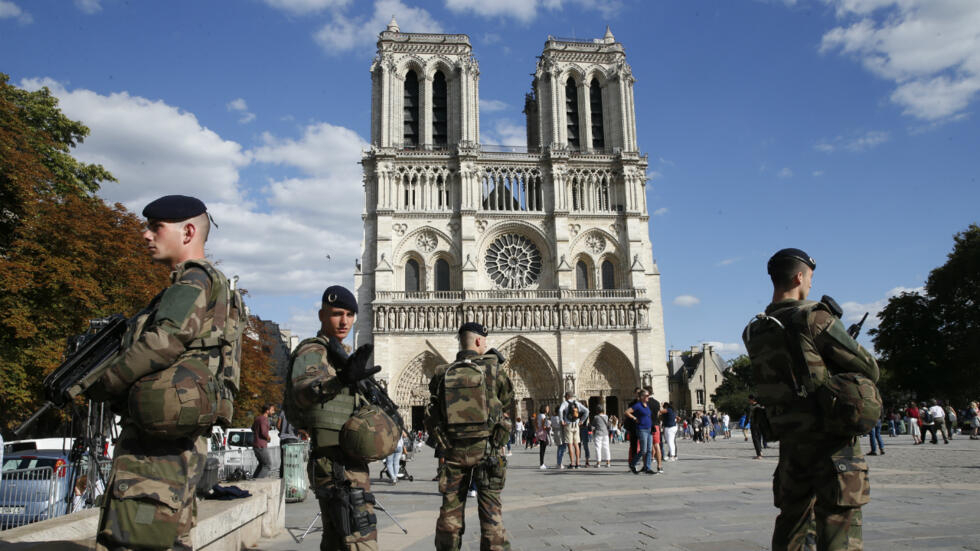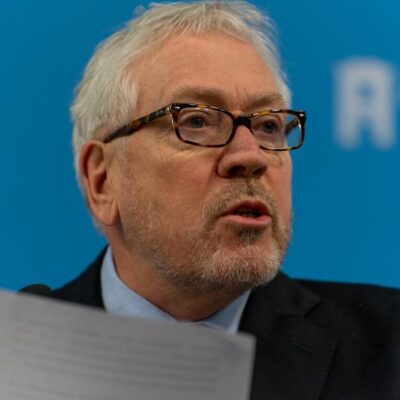
Looking back at the Paris Olympics, it became evident that the Islamic house requires redecorating. Unprecedented measures were taken to protect the approximately 10.000 athletes and millions of supporters during the Olympic Games. There was a substantial fear of Islamic terrorism, an imminent danger indeed. By what are these terrorists fed?
By Aart G. Broek
We need to focus our attention more than so far has happened to the Islamic ranks themselves. Decisive in the development of aggressive behaviour, excessive violence and brutal radicalisation is ‘shame’, i.e. the malicious mixture of emotions of sadness, fear and anger. That painful feeling is caused by pregnant experiences of being humiliated and – inevitably - the concomitant deep-rooted fear of such abuse.
Human beings are horrified by these painful experiences. We exert ourselves to avoid them. However, often, we are not successful in warding off all substantial humiliations, and then we are especially likely to become aggressive or even violent. There are quite a few significant manifestations of shame. Of these, violence is one particularly threatening yet meant to channel shame.
Angry outside world
First, and most severely, we fall victim to those humiliations in the social group in which we are born and grow up. Our own social group is the primal source for such hurtful experiences and, thus, for shame.
For those severe and prolonged-term humiliations, many Muslims point to Western societies as the world of great evil. The Americans - with European allies - invaded Islamic countries, killed tens of thousands of civilians and tortured prisoners. Muslims who came as labour migrants in the West were exploited and discriminated against harshly. Their religion is smeared in cartoons. The symbol of humiliation is Israel's action against the Palestinians. And so on.
However, this criticism of the Western world ignores the bitter shame experiences that are sustained within and by the Muslim groups themselves. The impact of these shameful experiences is more severe than the humiliations from outside. One’s group must be a safe base for the growing and adult people to participate in current societies.
However, the Muslim groups cannot always ensure this security and belongingness for each of their people. On the contrary, many Muslims are not able to cope with, among other things, the requirements or powerful influences of Western societies. The group appears to form a highly shaky base. No safe home port.
It is characteristic of people with an accumulation of shame experiences to externalise such failures, i.e. exclusively attribute these failures to others besides themselves and their group, i.e., the angry outside world and the Western world. For each of us, taking a closer look at one’s share in shameful actions is a considerable effort. We are inclined to deny and conceal this, for which the term ‘unacknowledged shame’ is used.
Inevitably, this also applies to Muslims.
Dictatorship
In this way, the worldwide Muslim community can be experienced as pronounced embarrassing precisely because of the inability to respond adequately to threats from outside. Thomas L. Friedman, columnist for The New York Times, wrote in 2006: "Israel's existence is a daily humiliation for Muslims, who do not understand how, if they have the superior religion, Israel can be so powerful."
No matter how violent the country can be, Israel is, in many ways, a relief in the light of Islamic dictatorships in the Middle East. The Islamic context is, therefore, structurally a shameful benchmark. Mecca, in Saudi Arabia, is in a country that is so rich that it could, in principle, absorb all Islamic migrants in the Western world. A Hajj (pilgrimage) may be an irresistible desire, but migrating to the country is hardly, if ever, an option. If only because refugees are not allowed to enter but also because immigration without a (well-paid) job is impossible.
Superior
More than once, it has been pointed out that shame experiences emerge because of – indeed, another tricky point - the inability of the Muslim communities to approach the attractive (im)material achievements of the Western world with their performances, let alone surpass these.
"It is quite evident that the economic, technical and intellectual dependence on the West is difficult to crop" for Muslims, said German cultural philosopher Hans M. Enzensberger. He added: "[this] means a quiet humiliation for every Arab who can think." (Versuch über den radikalen Verlierer. Frankfurt a/M, 2006)
No less embarrassing, the emancipation of Muslim women can turn out. As a result, when losing their traditional superiority, men are bound to experience emotional and social humiliation, which feeds aggression towards women. "For many young people who grow up in the patriarchal trace, it will be an undigestible humiliation to be forced to exert oneself to keep up with the girls at school," concludes the sociologist Abram de Swaan (De botsing der beschavingen en de strijd der geslachten. Amsterdam, 2006)
Incidentally, emancipation can turn out just as shameful for the mothers of emancipating daughters who, consequently, reject traditional role patterns - and thus reject their mother's education.
Expectations
In Western countries, humiliation for Muslims intensified through labour migration as such. The country of birth, such as Morocco and Turkey, were unable to achieve a more humane life for their national children. To that end, they had to move to the Western world. The children grew up with high parental expectations. Numerous migrant children were successful, and inevitably, shame the many who failed.
It is undoubtedly humiliating if you cannot meet the keyed-up expectations of your toiling parents, successful members of your generation and yourself. And this while you were given so many more opportunities than your parents. In addition, Western societies have spent tens of millions on migrant groups in recent decades to develop. The "losers" abused their parents, while the parents experienced their failure as shameful.
Even when attracting imams, Muslims cannot escape a shameful side effect. Despite the hundreds of thousands of Muslims, most imams still must be flown in from the Islamic mother country. Depending on his origin and the reception in the West, he has more or (often) less knowledge of the tension between the young people from his group and the requirements of surrounding Western society.
An answer is expected from him to a wide variety of questions. The imam cannot live up to expectations for long, so he scoops confidence. He is anything but a way to gain knowledge for (over) life in a secular environment.
On the contrary, the Belgian terrorism expert Montasser Alde’Emeh emphasises: "Neither the home environment nor the mosque encourages Muslim children to develop intellectually. [...] Their entire social environment does not encourage them to think about themselves. " (in an interview with Jan Lippens, 2016).
House in order
Shame experiences are fully contracted in their Muslim groups, both by men and women, regardless of the social low and cultural diversity, in the European country and the broad Islamic world, in the wide context and on an individual level in the immediate vicinity, present in the day and the past. The shameful experiences that are gained in their ranks form the fertile soil for aggression, violence and radicalisation.
The diversity of shame experiences can be effortlessly expanded and further specified. It concerns painful experiences both in the country of origin and - through migration - within Muslim groups in Western countries. Too often, the family does not form a steady bridge between a growing child and the outside world, does not accompany it sufficiently with its contacts with that world, and hardly protects it from its hidden dangers. From a lack of security and belongingness, young people must save themselves.
Because of this poisonous source of shameful experiences, we know what to zoom in on to get started preventively. The Muslim communities will have to put their own house in order to prevent radicalisation. The shameful experiences must be known, scrutinised and acknowledged. With the designation of the Western world as a scapegoat, one's shortcomings will not vanish, and we will not be able to channel the violence problems, no matter how extensive the security measures are.
Disclaimer: The opinions expressed in this article are solely the author's and do not reflect the website's or its affiliates' views and beliefs.






Pure Orientalism in the grandest 19th Century fashion. The author thinks there is a "Muslim world" while conflating Muslim and Arab at every opportunity. The concept of "shame" is used politically to include every single Muslim as being less than anything the "West" can and does elevate at any given time.
What is truly shameful is this type of regressive thinking finding itself into any format by couching this screed without adding "the Islamic mind" like the good old fashioned colonialist missionary bigots who created their "opinions" wholly from Christian Apologetic tradition.